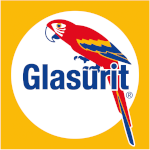FBHVC National Historic Vehicle Survey reveals significant contribution to UK economy
Published: 17/11/2020
• Number of historic vehicles on DVLA database has increased yet again to 1.5 million
• The historic movement now worth over £7.2 billion to UK economy
• 4,000 businesses employing over 34,000 people
• 700,000 enthusiasts – up from 500,000 in 2016
• Overall, historic vehicles account for less than 0.2% of the total miles driven in the UK
• 35% of owners either already or are willing to contribute to a carbon reduction scheme
• 56% of historic vehicles are on SORN
The results of the 2020 National Historic Vehicle Survey have been announced by the Federation of British Historic Vehicle Clubs. The summary results were revealed during the Virtual Lancaster Classic Motor Show with Discovery, filmed at the NEC this month.
Historically, the Federation has undertaken this major survey every 5 years, the most recent being the 2016. However, in light of the very obvious impact that worldwide pandemic has had on the UK and is likely to have on historic vehicle habits, the survey was conducted earlier to represent a more typical year in 2019.
The survey is the largest and most detailed survey of historic vehicle ownership carried out in any country. The results will help shape the future of the industry and will give the Federation of British Historic Vehicle Clubs the vital facts and figures needed to protect future of transport heritage in the United Kingdom at the very highest levels.
More vehicles, contributing more to the UK economy
Growth in the sector is the result of an increased number of historic vehicles registered with the DVLA, over the 2016 figures, to an incredible 1.5 million vehicles of all types from cars, buses and lorries to motorcycles, agricultural, military and steam vehicles. This represents 3.4% of all registered vehicles in the UK. Naturally, more vehicles mean more owners, 700,000 in fact, up by 200k on the previous survey in 2016.
The use of those historic vehicles and their need for services and supplies has kept spending healthy, with the historic vehicle sector now contributing an impressive £7.2 billion to the UK economy – that’s more than the equestrian sector and significantly up on the £5.5 billion in 2016.
This revenue is generated from the nearly 4,000 businesses that support the movement employing over 34,000 people. Those businesses are working on ensuring the future of the movement as well, with over a third either employing or considering employing an apprentice.
The value of individual vehicles is widely spread, with 51% having a market value of less than £10,000 demonstrating a community of diversity and inclusiveness driven by enthusiasm. 44% are registered as on the road and ready for use.
The survey revealed that increasingly, historic vehicles are not used for daily transport. Indeed, the average mileage covered during the course of a year is just 1,200 miles, which equates to all the historic vehicles on the road accounting for less than 0.2% of the total miles driven on UK roads each year. Despite that tiny mileage for recreational and heritage uses, enthusiasts are clearly becoming more aware of the environmental impact of their activities, with 35% of owners saying they already contribute to, or would consider contributing to, a carbon reduction scheme. The Federation is actively researching options to identity tangible solutions for enthusiasts.
So, the headlines are positive and it’s good news for the future of the historic vehicle community that, despite concerns and uncertainty around Brexit, the movement has continued to grow, develop and contribute a significant sum annually to the economy of the United Kingdom.
David Whale, Chairman of the FBHVC said, “The significant value to the United Kingdom that the historic vehicle industry generates simply cannot be ignored by those in power. We face the most challenging times ahead over the next few years and these results give us the justification to ensure that our freedoms to enjoy our transport heritage continue unhindered. As a sector we cannot be ignored and will be instrumental in the recovery of our nation’s economy post-Brexit and post-COVID. The most heart-warming news was that there are more enthusiasts than ever who are immersing themselves in our community and that is really positive for the future.”
The FBHVC will be releasing a more detailed report in mid- December 2020. Statistics are from the 2020 National Historic Vehicle Survey, carried out by the Federation of British Historic Vehicle Clubs during Summer and Autumn 2020. Other figures are from DVLA published statistics. JDA Research has been the FBHVC’s research partner for the 2020 Survey. JDA Research also undertook the Federation’s 2016 survey and is completing a worldwide survey on behalf of FIVA.
Downloads
| PR_Infographic_V3 (top_down).pdf |










